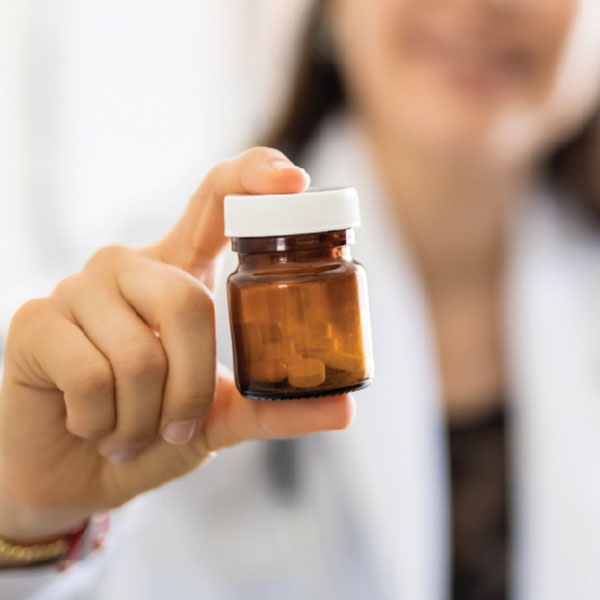LOCATIONS
Navigating the Road to Recovery: Options For Treatment and Drug Rehab in Syracuse
Local Resources & Information to Kickstart Your Recovery Journey
If you are in the Syracuse area and need help now, call (888) 290-5601
Help is available for those struggling with addiction in Syracuse
Addiction can be a devastating experience – both for the individual and their loved ones – but help is available for those struggling with substance abuse in the Syracuse area. There are numerous treatment resources and support services in the central New York region to guide you on the path to recovery.
The path to recovery starts here. Reach out and get the support you deserve.
Types of Addiction Treatment in Syracuse
For those seeking help with substance abuse in the Syracuse area, there are several different treatment modalities to consider:

Medically Supervised Detox
The first step for many people battling drug or alcohol addiction is medically supervised detox. These programs provide round-the-clock clinical care and medication management to help ease withdrawal symptoms and stabilize the patient as they begin the recovery process.

Medication-Assisted Treatment
Medications like buprenorphine, methadone, and naltrexone can be used in conjunction with different kinds of therapy to treat opioid or alcohol dependence.

Inpatient Treatment
Intensive inpatient rehab programs in Syracuse provide 24/7 residential care in a clinical setting. These programs typically last 30 days or more and include individual and group therapy, medical care, and other therapeutic activities to address the physical, mental, and emotional aspects of addiction.

Aftercare
Once the initial treatment phase is complete, ongoing aftercare and support services are crucial to sustaining long-term recovery. Sober living homes, outpatient counseling, 12-step meetings, and other community-based programs in Syracuse can provide the continued structure and accountability needed.
How to Choose the Right Drug or Alcohol Rehab In Syracuse For Your Loved One
When a loved one is struggling with addiction, finding the right treatment program in Syracuse can feel overwhelming. Here are some key factors to consider when evaluating different drug and alcohol rehab options:
- Level of care: Assess whether your loved one requires medically supervised detox, inpatient residential treatment, or a less intensive outpatient program. The appropriate level of care will depend on the severity of the addiction.
- Specialized services: Look for rehab centers in Syracuse that offer specialized services tailored to your loved one’s unique needs, whether that’s trauma-informed care, medication-assisted treatment, or programs for co-occurring mental health disorders.
- Accreditation: Ensure the treatment facility is properly licensed and accredited by the relevant state and national organizations, which indicates adherence to quality standards.
- Program length: Reputable addiction treatment programs in Syracuse generally recommend stays of 30 days or longer for the best chances of long-term recovery success.
- Aftercare planning: A high-quality rehab center will work with your loved one to develop a comprehensive aftercare plan, including referrals to local support groups, sober living homes, and continued outpatient services.
Taking the time to research multiple options in Syracuse can help you find the right fit and setting to support your loved one’s recovery journey.

Continuing Recovery Care & Sober Living Programs in Syracuse
Completing an intensive inpatient or outpatient addiction treatment program is an important first step, but ongoing support is essential for maintaining long-term sobriety. Aftercare and sober living programs in the Syracuse area can provide the continued structure, accountability, and community that is crucial for ongoing recovery.
Sober living homes offer a bridge between the treatment facility and fully independent living. These transitional, alcohol and drug-free residences in Syracuse give individuals in recovery a safe and supportive environment to build life skills, attend 12-step meetings, and gradually reintegrate into the community.
Outpatient aftercare programs in Syracuse may include individual or group counseling, case management services, and participation in a recovery support network. Regular check-ins and access to clinical professionals can help prevent relapse and sustain the progress made during the initial treatment phase.
Many Syracuse-area treatment providers also coordinate with local community resources, such as job training programs, educational classes, and recreational activities, to support a holistic approach to recovery. Exploring the various aftercare options in the Syracuse region can give individuals the best chance at lasting sobriety.

Local Stats You Need to Know
In 2021, Onondaga County (which encompasses Syracuse and the surrounding area) recorded 186 drug overdose deaths, marking the highest number ever reported in the county’s history.[1, 2] This surge reflects a troubling trend in the ongoing battle against increasingly potent opioid combinations. The county has seen at least 100 deaths reported each year since 2018, which starkly contrasts the fewer than 50 overdose deaths recorded annually just a decade ago.
As Syracuse grapples with these escalating numbers, the community’s efforts to address and mitigate the impacts of the opioid and drug abuse epidemic continue to evolve. Initiatives are increasingly focused on expanding access to treatment, enhancing overdose prevention strategies, and fostering collaboration among local organizations and healthcare providers to tackle this crisis from multiple fronts.
Paramount Wellness Can Help You Overcome Addiction
We’re here to help you start the recovery process from substance abuse and co-occurring mental health issues.
Sober Activities in Syracuse
- Visit the Rosamond Gifford Zoo: Explore diverse animal exhibits and participate in educational programs at the zoo located in Burnet Park.
- Stroll through Destiny USA: Shop, dine, and experience entertainment at this expansive shopping center, which also features attractions like an indoor ropes course and a virtual reality center.
- Tour the Erie Canal Museum: Discover the history of the Erie Canal through exhibits and interactive displays at this historic building in downtown Syracuse.
- Relax at Thornden Park: Enjoy walking trails, gardens, and the large open spaces for picnicking and leisure in this beautiful city park.
- Explore the Milton J. Rubenstein Museum of Science & Technology (MOST): Engage with hands-on science exhibits and watch IMAX films at this museum in Armory Square.
- Catch a show at Syracuse Stage: Experience live theater performances at this renowned regional theater located at 820 E. Genesee Street.
- Wander through the Syracuse University Art Museum: View a diverse collection of art spanning different periods and styles on the Syracuse University campus.
- Explore Green Lakes State Park: Hike the trails, enjoy swimming, and take in the natural beauty of the distinctive glacial lakes at this state park just outside Syracuse.
How to Pay For Alcohol or Drug Rehab in Syracuse
Paying for alcohol or drug rehab in Syracuse can be approached in several ways, ensuring access to necessary treatment regardless of your financial situation:
- Private insurance: Substance abuse treatment is covered by many health insurance carriers, depending on your coverage or plan. Check with your provider to understand what services are covered and if there are any network restrictions or co-pays.
- Medicaid: New York State’s Medicaid program covers a range of substance abuse treatment services. Eligibility is based on income and other factors, so it’s important to apply or verify your eligibility through the New York State Department of Health.
- Sliding scale fees: Treatment services at rehab facilities in Syracuse may fall under sliding scale fees based on your income. This can make treatment more affordable if you’re paying out-of-pocket. Contact facilities directly to inquire about their payment options.
- Grants and scholarships: Certain non-profit organizations and government programs offer grants or scholarships to cover rehab costs. Research local organizations or ask treatment centers for information on available financial aid.
- Payment plans: Making payments allows you to spread the cost of treatment over time. Discussing these options with the facility can help manage expenses.